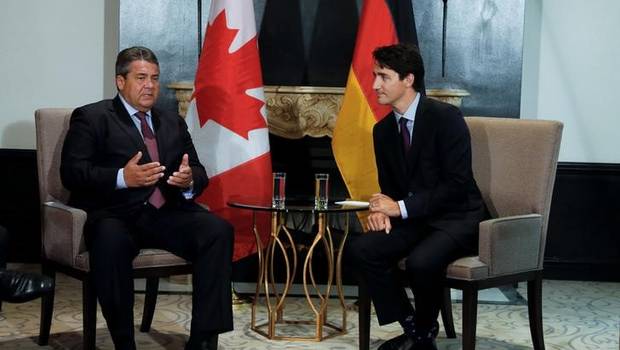Flashback a few months ago, Canada’s chief negotiator in the Canada-European Union Comprehensive Economic and Trade Agreement (CETA), was reassuring parliamentarians sitting on the Commons Trade committee that he was confident the deal would go forward and would receive all necessary ratifications from EU members.
For a while, Canadian officials and EU members held their breaths as Germany’s Constitutional Court was hearing all sides in the case of emergency appeals filed by activists.
But on October 13, the Court gave the go-ahead to the German Government to approve the ambitious trade accord between Canada and the EU and this particular ruling clears the way for another hearing which states that CETA violates the German constitution because it removes certain powers from its parliament.
Thursday’s ruling also sets certain conditions by imposing restrictions on sections of CETA that could take effect in Germany provisionally based and limited to the reach of an oversight committee.
Following the ruling, Jorg Hass, spokesperson for the social activist group Campact mentioned: “This was only a ruling about a request for an urgent matter, so it was not a ruling on the substance of CETA and whether it’s constitutional. Our complaint has been considered valid enough that it will be the subject of a proper proceeding.”
Trudeau Scheduled to Sign CETA deal in October

Within a week, EU trade ministers will be meeting to vote on CETA which requires unanimous support from all its members. Prime Minister Trudeau is scheduled to sign the deal during the Canada-EU summit on October 27. Although signed, the agreement still requires ratification by all EU members and by the EU parliament. But in order to get things started, it could be implemented on a provisional basis.
As for the hearing in Germany regarding the unconstitutionality of CETA, the hearing will take place only after the German parliament ratifies the Agreement. Currently, there is considerable opposition in the Bundesrat, one of two houses of the German parliament. Members of the Bundesrat are principally composed of representatives of the various German regions.

 Payment
Payment  My Account
My Account